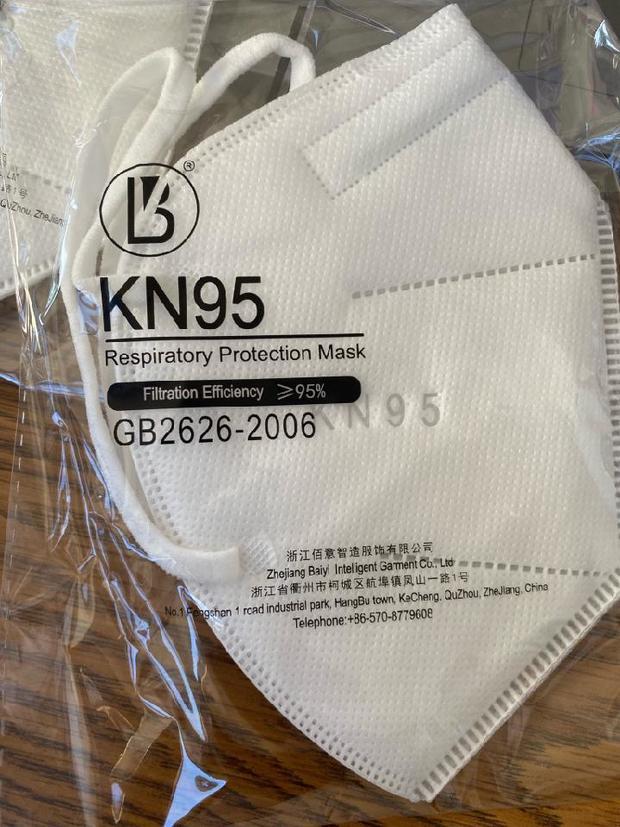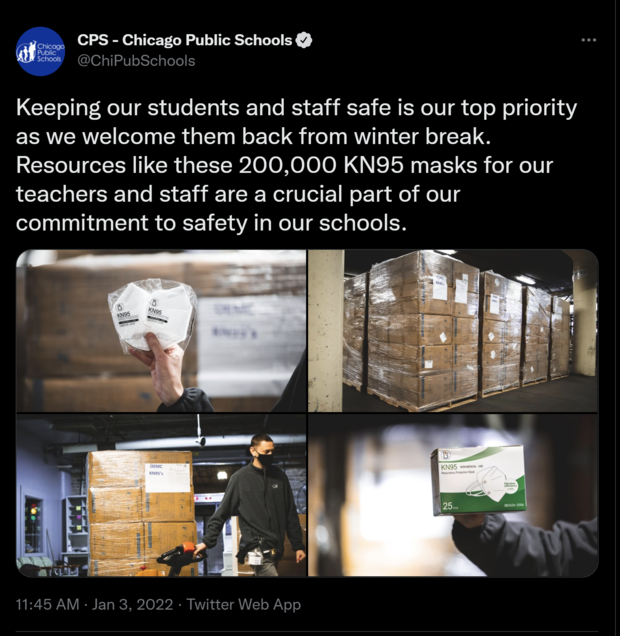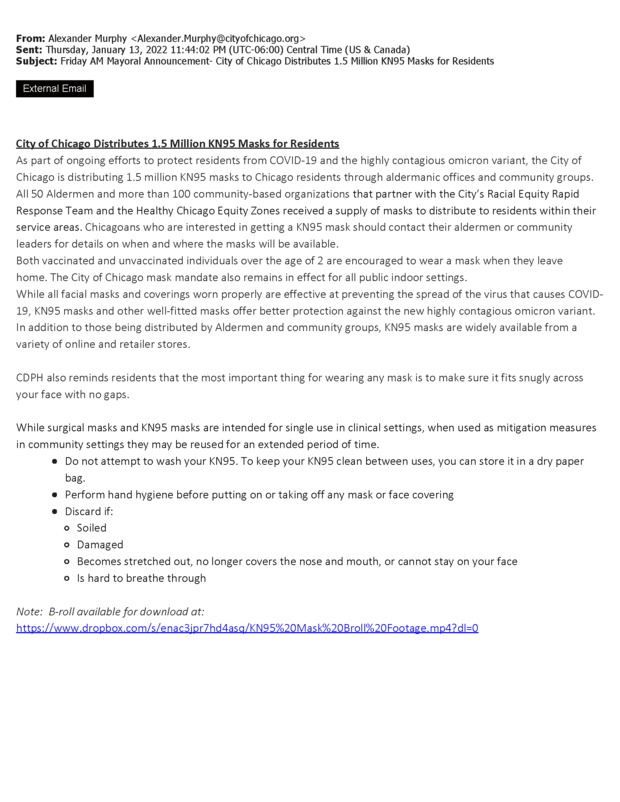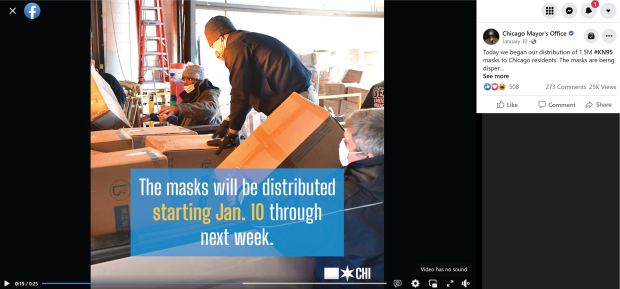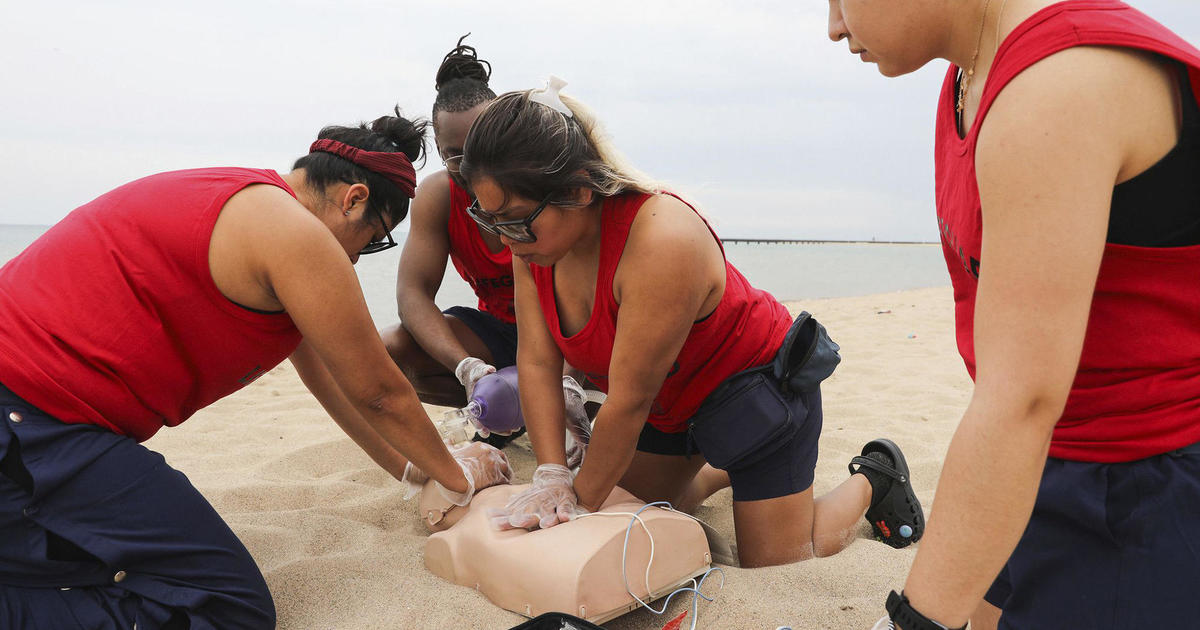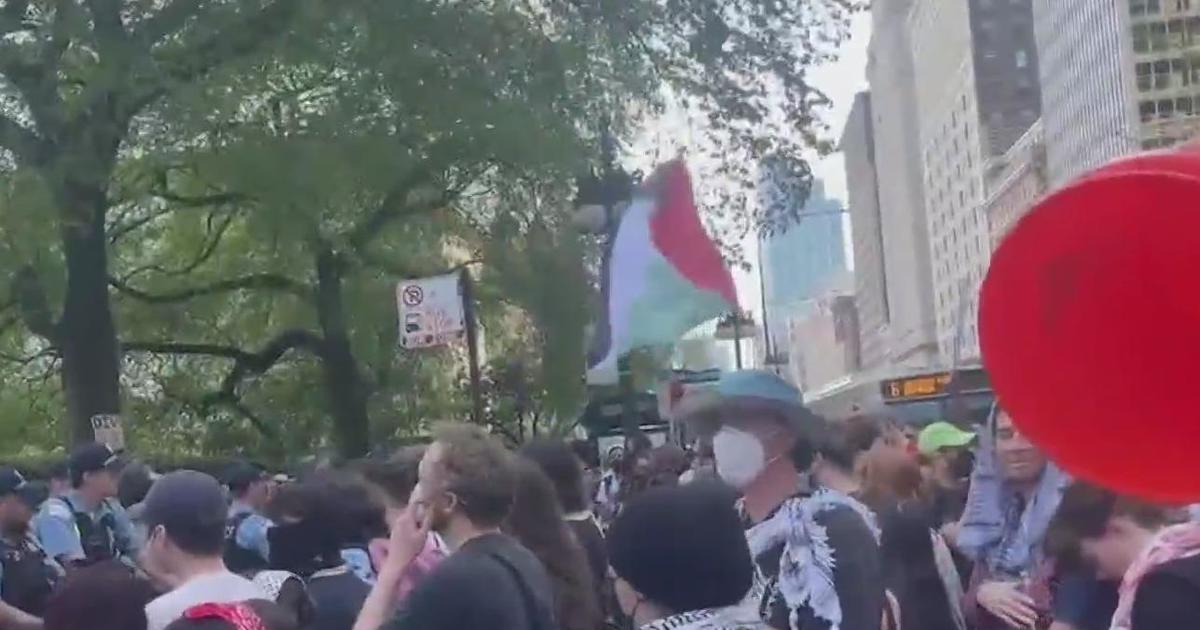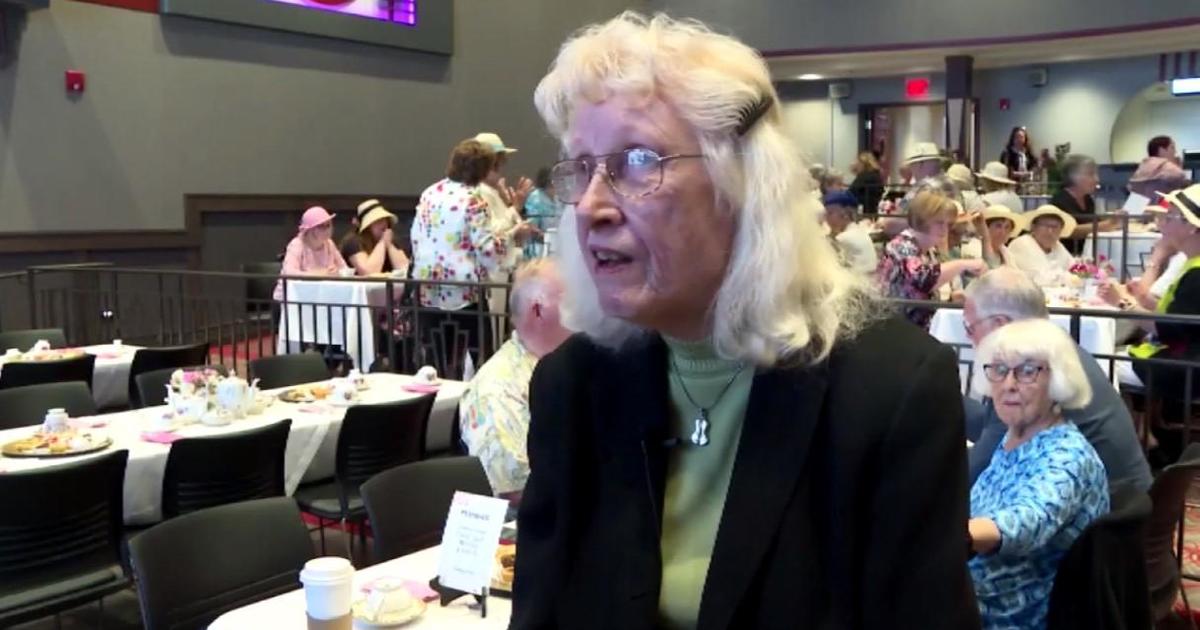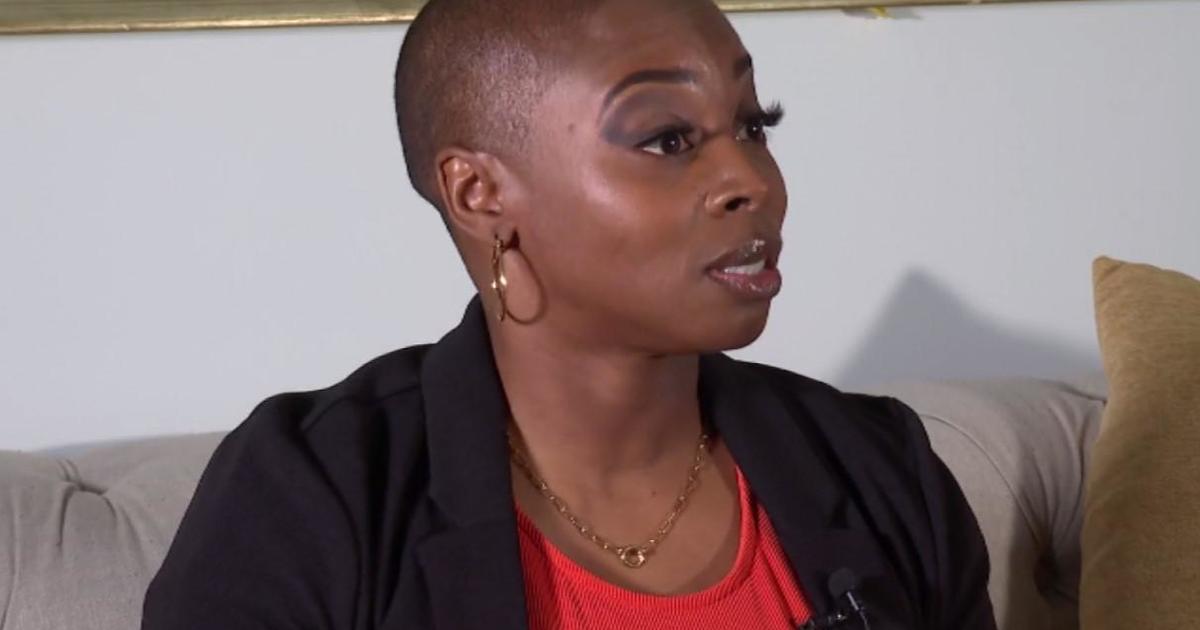'We made the decision': KN95 masks that failed federal testing for health care workers were given to CPS schools and Chicagoans during Omicron surge
CHICAGO (CBS) – A concerned teacher sent a tip to CBS 2 worried about KN95 masks sent to Chicago Public Schools (CPS) as part of the agreement to end a five-day standoff between CPS and the Chicago Teachers Union.
One reason for the showdown in early January was concern for health and safety of teachers and students at a time when the Omicron COVID-19 surge was peaking.
That teacher's tip indicated the masks felt different. They seemed thinner than other KN95s and were more uncomfortable. A quick online search turned up something even more worrisome for the teacher – this brand of mask was on a federal "no longer authorized" list.
The teacher's concerns, that nugget of information about the list and a picture of the mask in question sent CBS 2 on a search for answers. Over the next few months, we emailed and talked to representatives from city, state, and federal agencies to find out more about the KN95 masks made by the Zhejiang Baiyi Intelligent Garment Company.
THE BACKGROUND
The teacher was right. The Zhejiang Baiyi masks had been put on a federal watch list after failing federal filtration testing in May 2020. In a sample of 30 masks tested, a few fell below the 95% filtration standard. One tested as low as 78.6% filtration.
May 30 Test Results MTT-2020-213.1 International ZhejiangBaiyi LB TestReport Redacted-508 (1) by Adam Harrington on Scribd
The Food and Drug Administration (FDA) pulled the Zhejiang Baiyi masks, along with dozens of others, off the Emergency Use Authorization (EUA) list in June 2020, saying masks "that do not meet performance expectations are no longer authorized."
So, at the beginning of the pandemic when the highest quality N95 masks were hard to come by for people working in healthcare settings many turned to KN95 masks to bridge the gap until more traditional Personal Protective Equipment (PPE) could be found and distributed. During the gap, the FDA authorized masks made in China and other countries for emergency use here in the United States. The U.S. government randomly tested the masks to ensure the highest quality possible during a situation in which people were getting sick and dying daily from a new, little-known virus.
A year later when PPE was easier to come by and more was known about coronavirus, in June 2021, the FDA permanently revoked the EUA.
The FDA is clear that they are concerned with use of the masks in healthcare settings. But, the CDC guidance is more broad. The CDC website indicates the tests were conducted on KN95 masks "to support the availability of respiratory protection to US healthcare workers and other workers due to the respirator shortage associated with COVID-19."
Back to the teacher's concern. Were these masks safe for teachers to use in January 2022 as protection for themselves and their students against a more transmissible variant of COVID-19?
OMICRON, MASKS, AND CITY'S RESPONSE
CBS 2 then began looking at the Zhejiang Baiyi masks themselves and asked various city departments questions: Which masks were given to CPS to end the showdown? When did the city get the masks? Where did the city get the masks from? Did the city pay for the masks?
It took months of emails back and forth with CPS to verify, in fact, CPS received 200,000 of the Zhejiang Baiyi masks and distributed more than 100,000 to schools to end the CPS-CTU showdown. We later discovered a CPS tweet showing the Zhejiang Baiyi masks and revealing how many it received.
The Jan. 3 CPS tweet shows the masks came from the Office of Emergency Management and Communications (OEMC) warehouse. In mid-January, the City of Chicago put out a press release announcing it would send out 1.5 million masks to aldermanic offices and community groups to help combat Omicron.
Social media posts and video provided by the city show box after box of the same Zhejiang Baiyi masks being loaded onto trucks.
After a series of email exchanges with OEMC the agency eventually revealed it had received 784,000 of the masks from the federal government in September 2020. That was three months after the FDA put the masks on an unapproved list for healthcare facilities.
We contacted the two federal agencies tasked with distributing PPE to states in 2020 and both deny either having this brand of mask in their stockpiles or sending this particular brand of mask to Illinois.
A closer look at the boxes in the OEMC warehouse and you notice a sticker showing the masks were directly shipped from China to O'Hare. CBS 2 has been unable to determine which agency sent the masks to Chicago or how much of your tax dollars were spent on them.
ANOTHER TEST
The teacher's concern has a basis in fact. The masks were pulled and not distributed to healthcare workers three months after failing federal testing. And, the CDC cautions "other workers" to take those test results into consideration before using them.
But, questions remained about the specific masks actually sent to CPS and Chicagoans throughout the city in January. We hired ECRI to test some of those masks. ECRI is an independent nonprofit that had conducted the very same federal testing for healthcare organizations in 2020, using the same methods and machines as NIOSH.
We sent ECRI a smaller sample of 20 masks. We received them from teachers and community organizations. None of the masks in our smaller sample failed the filtration testing. However, another concern appeared. Chris Lavanchy, the Director of Engineering at ECRI said, "The breathing resistance is a little higher than I might expect, but it's not unacceptable."
Later, a closer examination of the mask packaging revealed something ECRI's President and CEO, Dr. Marcus Schabacker had never seen before, "The box said it should only be worn for four hours."
ECRI Test Results by Adam Harrington on Scribd
He added that the smaller sample size we provided could help explain the differences in test results, "We didn't test as many. So, If you would really want to compare apples to apples, you would really have to go back to a larger sample size."
Dr. Schabacker says anyone no matter their occupation, especially those who are immune-compromised, should keep those 2020 test results in mind, when deciding whether to use this brand of KN95 mask. "What the mask does it reduces the amount of viruses actually getting through. You can literally think of it as a physical barrier to prevent the virus getting through to you," he said. "So if you have a 78 or if it's a 95 – that's a pretty dramatic difference because it's a percentage. The risk of getting infected gets exponentially up the more virus gets through."
THE REACTION
We took the teacher's concern, the May 2020 test results, ECRI's 2022 test results and the box recommendation to only wear the Zhejiang Baiyi mask for four hours to various city and community leaders.
Community leaders expressed concern but did not want to speak on camera. CTU President Jesse Sharkey said teachers regularly work seven-hour days, "Now to hear that there's a shelf life… of four hours. That should just add to our concerns."
And, the city's health commissioner, Dr. Allison Arwady agreed to appear via zoom with us for an in-depth interview on this topic.
CBS 2 asked her when and what the Chicago Department of Public Health knew about the masks and the failed federal testing. She did not answer directly but said, "KN95 masks are a definite step up from, you know, some of the cloth masks." She added that none of these Zhejiang Baiyi masks ever went to any healthcare facility. These masks remained in storage until this year.
We then asked if teachers and students had the right to know about the failed federal testing and the four-hour recommended time limit for wearing the masks. She sidestepped the question and responded by saying, "The decision in January was do we release the cache that we have held in case of surge and I felt strongly about releasing them."
We pressed on the four-hour time limit and informing teachers about the test results.. Dr. Arwady said the four hour rule was only for healthcare settings. But, the recommendation on the box does not mention that. Dr. Arwady explained the decision-making process in January 2022. "Are they appropriate for [the] public which includes teachers and students? Are they appropriate for health care? In this case, in the time of the Omicron surge we made the decision and I would make it every time right over again."
We asked CPS about the failed testing as well. CPS provided a statement via email which reads in part, "Although the FDA guidance on these masks only applied to healthcare settings, CPS decided to stop distributing them to avoid any confusion and alleviate any concerns among students, staff and families."
As of March, OEMC reported to us there were still 250,000 of the Zhejiang Baiyi masks in its warehouse.
"The city knows that there's a problem with these masks, but the information never makes it way down to the teachers on the front lines. That's not acceptable," said Sharkey.
"I take offense that there's a concern that in some ways, they [the masks] are putting people at risk," said Dr. Arwady.
CDPH STATEMENT (May 12)
The guidance from the FDA on the use of these masks had to do with healthcare settings, and the City did not distribute them to such settings. In addition, the recommendation on limiting use of this particular mask to four hours also is for clinical settings. Masking continues to be an important measure people can take to help limit the spread of the COVID-19 virus. Some masks offer higher levels of protection than others, and some may be harder to tolerate or wear consistently than others. For the general public, it is most important to wear a well-fitted mask correctly that is comfortable for you.
OEMC Statement (May 12)
As the City of Chicago's emergency management agency, OEMC coordinates logistics around distribution and storage of emergency supplies. In this instance, OEMC aided in the distribution of the masks. While we did assist with acquiring and distribution, we rely on the assistance of our counterparts at CDPH and their expertise regarding the grade specifications and efficacy of the masks from a public health perspective.
CPS Statement (May 11)
Chicago Public Schools (CPS) has prioritized the health and safety of all students and staff amid the COVID-19 pandemic and beyond. Although the FDA guidance on these masks only applied to healthcare settings, CPS decided to stop distributing them to avoid any confusion and alleviate any concerns among students, staff and families. Following guidance from CDPH, we continue to strongly encourage, although not require, masking while indoors, knowing that it is an important component in stopping the spread of COVID-19.
